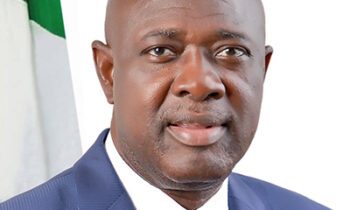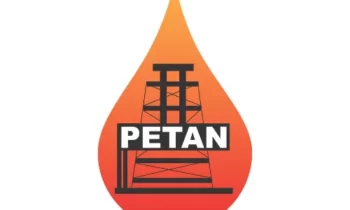
…Assets Valued at $2.3 billion
Olusola Bello with agency report
The inability of Nigerian lenders to raised enough dollars for intending buyers of oil assets planned to be put on offer by Shell has stalled the exrcise.
Royal Dutch Shell is planning to sell off its onshore and shallow water assets, being managed by its Nigerian unit, the Shell Petroleum Development Company (SPDC).
According to report by Bloomberg,Nigeria’s lenders likely do not have enough dollars to fund clients seeking to acquire the oil assets put on sale by the International Oil Company (IOC), quoting Guaranty Trust Bank Plc.
Guaranty Trust Bank Chief Executive Officer, Segun Agbaje said he didn’t see the likelihood of any client raising the estimated $2.3 billion needed to purchase the Shell assets.
Such a deal would require a syndication of up to $1.8 billion, and it “can be very tough to raise this kind of funding locally at the moment,” Agbaje said.
“When I look at the books of Nigerian banks today, I don’t see a lot of dollar liquidity,” Agbaje told an investor conference call in Lagos, according to Bloomberg, adding that “It’s becoming a very difficult deal for people to pull off.”
Nigerian banks in 2013, syndicated $3.3 billion debt to Dangote Industries for a refinery and petrochemical plant and recently financed Heirs Holding’s $1.1 billion acquisition of OML 17.
A slump in crude prices and an economic downturn arising from the coronavirus pandemic curbed foreign-currency flows into Africa’s largest crude producer and has continued to pressure its foreign reserves.
In May this year, Shell had said its onshore operations in Nigeria’s oil and gas industry were no longer compatible with its long-term climate strategy, coming under increasing pressure from investors to slash emissions and pivot toward cleaner energy.
The company’s Chief Executive Officer, Ben van Beurden, told investors that the additional community issues in the Niger Delta were becoming a huge challenge for the company.
“The balance of risks and rewards associated with our onshore portfolio is no longer compatible with our strategic ambitions. We cannot solve community problems in the Niger Delta and the company has started discussions with the government on how to move forward,” he said.
The Anglo-Dutch company had been gradually selling onshore assets in the West African country for more than a decade, as it sought to put aside chronic problems such as pollution caused by ruptured pipelines and the resulting legal battles with local communities.
The issue has become more acute in the past year after Shell pledged to transform itself into clean energy giant and gradually wind down its oil and gas business to achieve net-zero carbon emissions by 2050.
The federal government also recently confirmed that talks were ongoing with Shell, but stated that it was encouraging the company to keep its onshore operations instead of divesting.
However, local communities from the Niger Delta have said that Shell cannot abandon the area after years of degrading their farming and fishing environment, insisting that aside remediation works, compensation must be paid before the company’s planned exit.
Recently, Wood McKenzie, a leading global oil and gas consulting firm, putting the total value of SPDC, the subsidiary the parent company proposes to totally divest from, at about $2.3 billion. But the IOC must get consent as well as negotiate the Nigerian National Petroleum Corporation (NNPC)’s pre-emptive rights before the assets can be sold, it was gathered.
As many as 19 Oil Mining Leases (OMLs) would be put up for sale by the oil giant in onshore locations and shallow waters in the company’s eastern and western operations in the Niger Delta.
In February, a Dutch court held Shell’s Nigerian subsidiary responsible for multiple oil pipeline leaks in the Niger Delta and ordered it to pay damages to farmers.
Meanwhile, Chevron Corporation has pledged to triple to $10 billion its investments to reduce its carbon emissions footprint through 2028, but said it was not yet ready to commit to a 2050 net-zero emissions target.
Oil producers globally are under mounting pressure from investors and governments to join the fight against climate change and sharply cut greenhouse gas emissions by mid-century, with US majors lagging efforts by European companies.
Chevron said half of its spending will go to curb emissions from fossil fuel projects, total of $3 billion will be applied for carbon capture and offsets, $2 billion for greenhouse gas reductions, $3 billion for renewable fuels and $2 billion for hydrogen energy, Reuters reported.
Chief Executive Michael Wirth told investors Chevron may not be ready to commit to net-zero targets, so as not to put the company, “in a position in which we lay out ambitions that we don’t believe are realistic and deliverable.”
“The board is looking to see, how do you deliver a strategy that meets the needs of shareholders today and the expectations of shareholders for the future?” the CEO said, adding that, “Directors may re-address a net-zero goal later this year with the company’s climate report.”
European oil producers have set plans to shift away from fossil fuels with larger investments in renewables and 2050 emission targets.
US oil producers Chevron, Exxon Mobil Corp and Occidental Petroleum sought to reduce carbon emissions per unit of output while backing carbon capture and storage.
BP Plc has said it will invest $3 billion $4 billion a year in low-carbon projects by 2025 and shrink oil and gas production by 40 per cent in the next decade, while Royal Dutch Shell Plc in February set annual investments of $2 billion $3 billion in clean energy.
Chevron maintained its goal of paring greenhouse gas intensity by 35 per cent through 2028 compared to 2016 levels from its oil and gas output, saying it would expand renewable natural gas production to 40 billion British thermal units (BTUs) per day and increase renewable fuels production capacity to 100,000 barrels a day to meet customer demand for renewable diesel and sustainable aviation fuel.
“We expect to grow our dividend, buy back shares and invest in lower-carbon businesses,” Wirth said.
Chevron aims to increase hydrogen production to 150,000 tonnes a year to supply industrial, power and heavy duty transport customers and raise carbon capture and offsets to 25 million tonnes a year by co-developing regional hubs.
“We have favoured action over pledges,” Wirth said on a call with reporters, insisting “We have not at this point declared a net-zero 2050 ambition as others have because we are still working on all of the elements that we believe will be essential in order to get there.”





